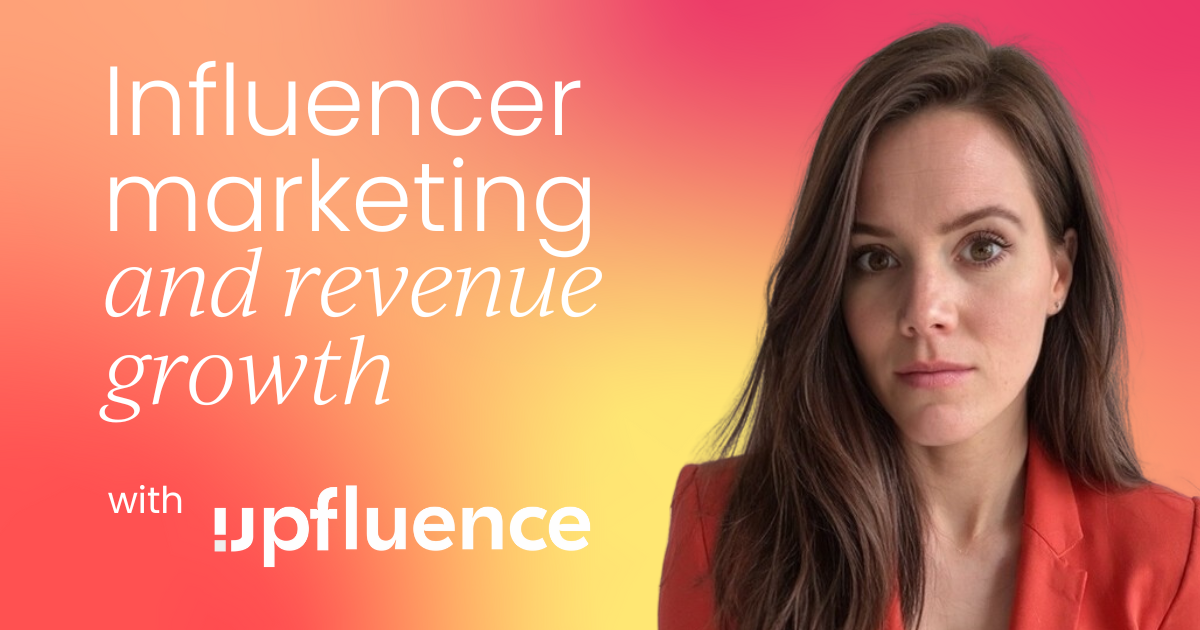You've probably heard the saying, "It's not about the destination, it's about the journey." The same rings true for the world of executive marketing roles. While the CMO title is a respected and essential position within many organizations, it's far from the only option. In this article, I'll explore alternative high-level marketing roles and discuss how the marketing landscape's evolution has led to a more diverse range of opportunities for marketers.
The title of Chief Marketing Officer (CMO) first made its appearance in the early 1990s, a time when the role of marketing began to evolve and expand within organizations. As marketing became more intertwined with overall business strategy, organizations recognized the need for a dedicated executive to lead marketing efforts and represent the marketing function at the executive level.
So, why isn't the CMO role always the end goal for marketers? There may be a few reasons:
- Diverse skill sets and interests: Marketers often have a wide range of skills and interests that may not be fully utilized in the CMO role. Some may have strengths in areas like data analytics, user experience, or product management that align better with other executive marketing roles or hybrid positions.
- Evolving marketing landscape: The marketing landscape is rapidly changing due to advances in technology, shifting consumer behaviors, and emerging platforms. As a result, new executive marketing roles have emerged, such as Chief Growth Officer, Chief Experience Officer, and Chief Brand Officer, offering alternative career paths for marketers with specialized expertise.
- Organizational structure and size: Not every organization has a CMO role, especially smaller businesses or startups, where a more agile and lean team structure is preferred. In these cases, marketers may find themselves in alternative leadership roles or even creating their own hybrid positions that merge marketing with other business functions, or exploring fractional marketing as a solution to scale.
- Personal career goals and aspirations: Every marketer has unique career aspirations and may simply not view the CMO role as their ultimate goal. Some may be more drawn to the challenges and opportunities presented by other executive marketing roles or prefer to specialize in a specific area of marketing rather than taking on the broad responsibilities of a CMO.

Adapting to change: the dynamic forces shaping today's marketing landscape
The marketing landscape has undergone a significant transformation, largely driven by technological advancements. This has created a dynamic environment where marketers are required to wear many hats and adapt to a constantly evolving industry.
Some of the key factors contributing to this evolution include:
- The rise of digital platforms: The internet and social media have opened up new channels for marketers to reach their target audience. As a result, marketers need to be well-versed in the latest digital marketing strategies, such as content marketing, SEO, and social media advertising.
- The importance of data: Data-driven marketing has become crucial for making informed decisions and optimizing marketing strategies. Marketers need to be skilled in data analysis, using tools such as Google Analytics or Adobe Analytics, to track and measure the success of their campaigns.
- Personalization and customer experience: Technology has enabled marketers to deliver personalized experiences to their customers, which has become a key differentiator in today's competitive market. Marketers need to be adept at understanding customer preferences, segmenting their audience, and tailoring their marketing messages accordingly.
- The integration of marketing and technology: Marketing automation, artificial intelligence (AI), and machine learning are becoming increasingly important in the marketing world. Marketers need to understand these technologies and be able to leverage them to streamline processes, improve targeting, and boost the overall effectiveness of their campaigns.
- The need for cross-functional collaboration: Marketing is no longer a siloed department. In today's business landscape, marketers must work closely with other departments, such as sales, product development, and customer service, to create a seamless customer journey and achieve company goals.
So, as technology and industry trends continue to transform the marketing landscape, a host of alternative executive marketing roles are emerging, each tailored to address specific needs and challenges faced by organizations today.
Exploring alternative marketing leadership roles
From Chief Growth Officer to Chief Experience Officer and Chief Brand Officer, there are numerous alternative executive marketing roles to consider.
Chief Growth Officer (CGO)
The Chief Growth Officer focuses on driving growth across the organization by identifying new revenue opportunities, optimizing existing channels, and aligning marketing, sales, and product teams. While the CMO is responsible for brand positioning and marketing strategy, the CGO takes a more holistic approach to business growth, encompassing a wider range of functions, such as sales, partnerships, and product development.
Personal strengths that align with the role
- Strategic thinking: A CGO should be able to identify growth opportunities, create long-term plans, and foresee potential obstacles.
- Analytical skills: Proficiency in data analysis enables a CGO to make informed decisions and optimize revenue-generating channels.
- Collaboration: A CGO must work effectively with cross-functional teams, fostering synergy between marketing, sales, product, and other departments.
- Adaptability: The ability to navigate change and embrace new approaches is essential for driving continuous growth and innovation.
Chief Experience Officer (CXO)
The Chief Experience Officer is responsible for managing and enhancing the entire customer experience, from acquisition to retention. This role goes beyond traditional marketing and involves designing seamless, memorable experiences across all customer touchpoints. While the CMO primarily focuses on brand messaging and marketing campaigns, the CXO dives deeper into customer interactions, ensuring consistent, high-quality experiences that promote loyalty and satisfaction.
Personal strengths that align with the role
- Empathy: A strong understanding of customer needs and emotions is vital for designing and delivering exceptional customer experiences.
- Creativity: CXOs should be able to generate innovative ideas and solutions to enhance the customer journey across all touchpoints.
- Problem-solving: The ability to identify and address customer pain points is critical for ensuring a seamless, satisfying experience.
- Communication: CXOs must effectively convey the importance of customer experience to stakeholders, inspiring a customer-centric culture within the organization.
Chief Brand Officer (CBO)
The Chief Brand Officer is responsible for developing, managing, and protecting the company's brand identity. This role oversees all brand-related activities, such as messaging, visual identity, public relations, and reputation management. While the CMO may be involved in brand strategy, the CBO takes a more focused approach to brand stewardship, ensuring that the brand remains consistent, authentic, and resonant across all platforms and channels.
Personal strengths that align with the role
- Storytelling: A CBO should be skilled at crafting compelling narratives that resonate with target audiences and embody the company's values.
- Attention to detail: Maintaining brand consistency across all platforms and channels requires a meticulous eye for detail.
- Crisis management: A CBO must be adept at managing and mitigating potential threats to the company's brand reputation.
- Relationship-building: The ability to forge strong connections with media, influencers, and other stakeholders is key to promoting and protecting the brand.
Other emerging roles, like Chief Content Officer (CCO) and Chief Digital Officer (CDO), offer exciting opportunities for marketers with specialized skills. The CCO is responsible for strategizing, creating, and managing all content across various platforms, ensuring it aligns with the brand's goals and engages target audiences effectively. Key strengths for this role include creativity, storytelling, project management, and a deep understanding of different content formats and distribution channels.
The Chief Digital Officer leads the digital transformation of an organization, overseeing the integration of digital technologies, processes, and strategies into all aspects of the business. This role requires expertise in areas such as e-commerce, mobile, social media, and digital analytics, as well as a strong vision for leveraging technology to drive business growth. Key strengths for this role include strategic thinking, technical knowledge, adaptability, and strong leadership skills to foster a culture of innovation and change.
Fractional marketing has also emerged as an innovative solution for individuals and businesses seeking top marketing executive talent without a full-time commitment. This approach offers flexibility for individuals, access to top talent for businesses, customized marketing solutions, and promotes collaboration and cross-functional expertise. By working with fractional marketing executives, businesses can stay agile and adapt to the rapidly changing marketing landscape. For marketers, it's a chance to apply their unique skill sets and experiences across a diverse range of industries and projects. This flexibility allows them to continually learn, grow, and stay engaged in their careers without being confined to a single organization or role.

Embarking on your unique marketing leadership journey
As you navigate the diverse world of executive marketing roles, remember that finding the perfect fit could go beyond the traditional CMO title. By embracing self-reflection, curiosity, and exploration, you can uncover opportunities that align with your skills, passions, and goals. Be bold in charting your own path, whether that means pursuing alternative leadership roles, creating a hybrid position, or embracing the flexibility of fractional marketing. By staying open to new possibilities and forging meaningful connections within the industry, you'll be well-equipped to thrive in a marketing landscape that's constantly evolving.
No matter the C-Suite marketing role that's right for you, there are certain skills you need to succeed. Discover what they are, and how to sharpen them with the C-Suite Masterclass.






.png)









 Follow us on LinkedIn
Follow us on LinkedIn





